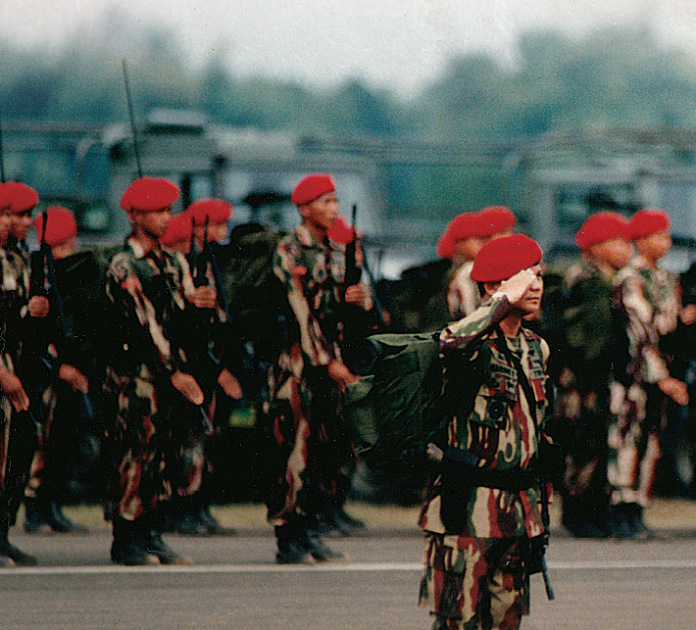By: Prabowo Subianto [taken from the Book: Military Leadership Notes from Experience Chapter I: Exemplary Leaders of The Indonesian Armed Forces]
“Regard your soldiers as your children, and they will follow you into the deepest valleys. Look upon them as your own beloved sons, and they will stand by you even unto death.”
-Sun Tzu
Historically, there have been many examples of successful military leadership. Of course, many have also failed. Successful military leadership requires a leader to serve as a role model and command the loyalty of his soldiers.
The ancient Chinese military strategist Sun Tzu in one of his treatises once wrote: ‘If a commander treats his soldiers as he treats his sons, or if a commander loves his men as he loves his children, his men will be prepared to die for him. ‘
A leader must establish such emotional bonds to achieve successful military leadership. There is an adage among soldiers worldwide that says, ‘If you take care of your men, your men will take care of you. ‘
Based on my personal experience, it is extremely difficult to lie to your men. Now it has been proven. According to many scientific studies on psychology, nonverbal communication exists and applies widely in human relations. I had the chance to read one of the top psychology books explaining that subordinates in a certain group or unit can feel the seriousness, or lack thereof, in their leader.
The author says that even a dog can understand and feel human attitudes and intentions, especially its master’s. Dogs cannot speak human language, but they can communicate with humans to sense whether we love, fear or hate them.
If a dog is happy to see a person, it will wag its tail. The faster and wider it wags, the greater the excitement it shows. When a dog jumps at you and wants to kiss or lick you, it shows how much it loves you.
These behaviours are proof that even dogs can feel and be able to convey their feelings to humans. Through his attitude, behaviour, and nonverbal communication (body language), a leader can also convey his true feelings to the men he leads.
This body language in the form of subconscious movements or microexpressions often goes unnoticed.
There have been many studies on this subject recently. Even the police force and intelligence services in various countries hold special courses to train their officers to read these microexpressions. They are trained to assess whether someone is lying or not.
The accuracy of this microexpression analysis turns out to be very high. I learned from decades of experience, so I believe that this is true and precisely the key to a leader’s success.
In short, a leader must be earnest and honest in the presence of his men. This is especially crucial in a military environment and more so in combat units. A dishonest leader and one who lacks seriousness will not go unnoticed and lose the respect of his troops.


